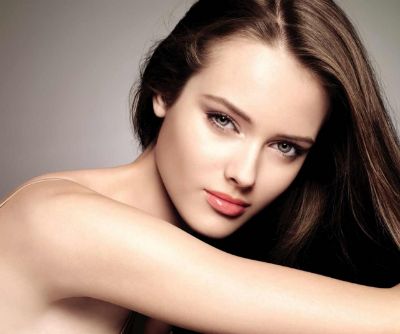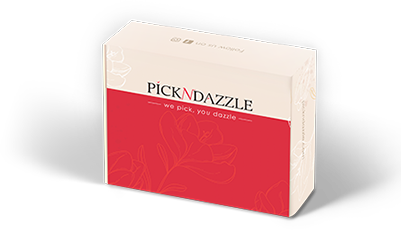In real life, if you’re going to contour, you should do it right, otherwise it can look false and awkward. Here are a few tricks to make your contour more realistic and to prevent it from looking drag-queeny or harsh.
WHAT IS CONTOURING?
Contour is when light and dark shades are used to mimic the effect of light falling on the face, giving shape or a spotlight to a certain area. It is all about enhancing or manipulating facial structure with makeup. The goal is to make it look realistic so it’s not noticeable. Just like filling in the brow or adding lashes, it’s all about illusion and understanding the fundamentals of color, light and texture. Where you place your color on the face will determine what the finished application looks like.
THE RIGHT STUFF
Choose a lighter shade when you want lift. A light color opens something up, brings something out or makes something look larger. The same goes for a product that has shine, sparkle, or shimmer. Lighter colors or a product that reflects light should be used on the higher points of the face or when you need to create an illusion of space. For example, if someone has a short forehead or a flat chin, adding light to an area will produce balance, width or length.
A darker color is going to pull something back and make something appear deeper or smaller. To ensure the best contour, stick with matte textures and use the shimmer shades only for your highlights.
CHOOSING COLOR
When choosing your contour shade, stay away from colors that are too warm or too red, and avoid using bronzer. You need to choose a color that gives the illusion of an actual shadow. Think of it like the shade from a tree. You want cool tones of taupe, brown-beige, grey, or even a lighter, saturated black. From the lightest to the darkest skin, these cool shades will look like naturally occurring shadows—not makeup. For the most natural contour, use a soft blush shade or a darker pressed powder or foundation. Choosing a product two or three shades darker than your own complexion will achieve the most natural contour.
CREAMS OR POWDERS?
The correct formula is essential for the perfect contour. Powders will give a more matte finish, while creams will look more dewy. Try combining a powder for contour paired with a cream for highlight. This will soften the line between the shades, and will create a look that leaves everyone thinking this is your natural bone structure.
ADD A NATURAL FLUSH
Adding blush in sheer layers gives a flush to the skin and a more natural finish. Apply a pink or red-based blush that works for your complexion at the apple of the cheek to mimic the effect of blood flushing to the surface. Next, use a skin tone in peach, coral, or orange (anything that has heat to it) on the high point of the cheekbone. A taupe blush or powder should be applied below the cheekbone. Press the taupe or brown shade up into the cheekbone, rather than pulling down (a method you may have seen online in some tutorials). This combination of the three colors will give you a very natural flush to the skin while bringing out the shape that you want to achieve.
THE FINAL TOUCH
Finish by applying bronzer only where sun hits the face—the forehead, down the center of the nose, the highest point of the cheekbone, the chin, and on any exposed skin like the shoulder or decolletage. If you want to add a highlight, now is the time. Apply a lighter or reflective shade at the highest point of the cheek bone from the temple down towards the apple of the cheek.
DON’T BELIEVE THE HYPE
In order to contour properly, you don’t need to buy a product labeled “contour palette”—you can get the look with products you already have. Contour is about understanding how light and dark shades work together to give shape. You can achieve it with any proper application of foundation, powder, eye shadow, blush or brow colors. It’s all up to you and your ability to create illusion.
Source: www.beautylish.com





